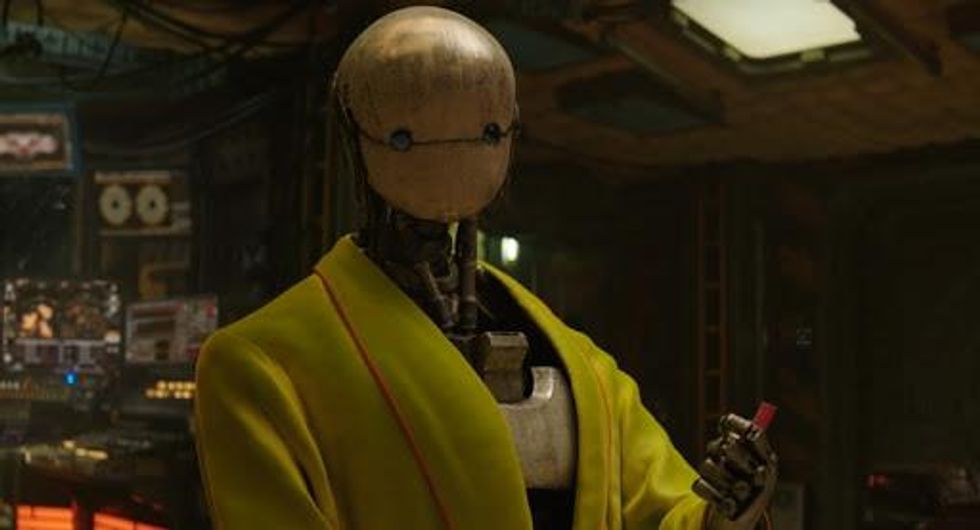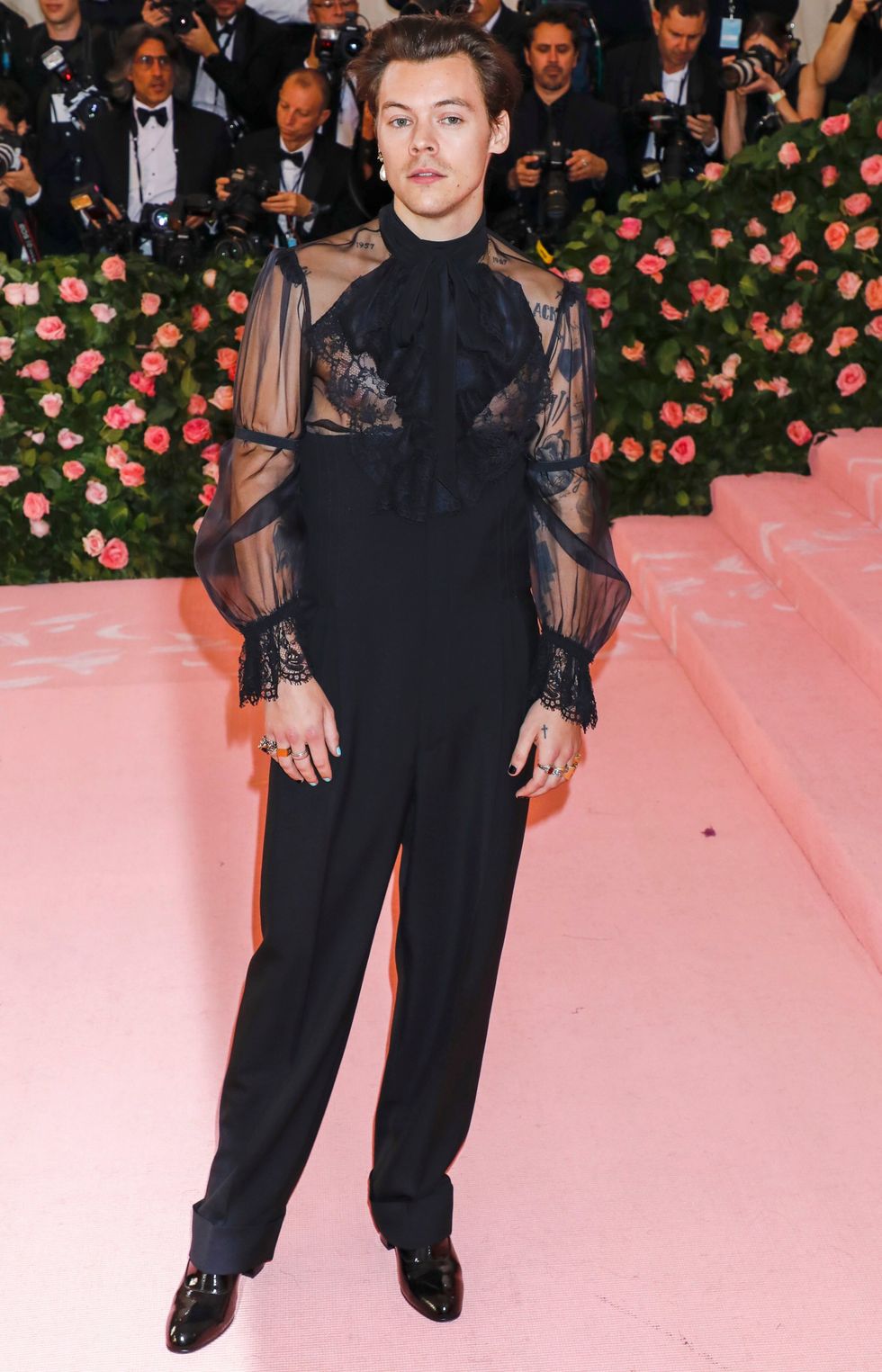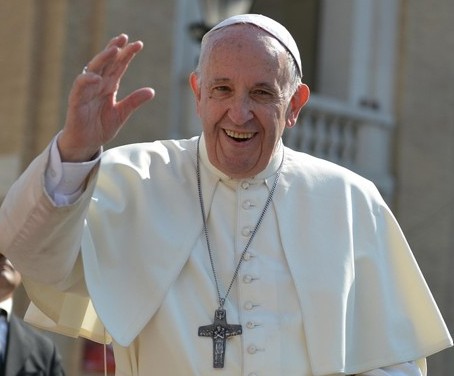
Space Sweepers | Official Trailer | Netflix
Netflix / Youtube.com
On Friday Netflix premiered a new Korean sci-fi adventure movie called Space Sweepers.
The film’s most notable achievement is its stunning visual effects, reminiscent of Blade Runner 2049 and Guardians of the Galaxy — despite working with around 1/10th the budget. These effects serve a story that is largely just a fun space adventure. But if we look deeper, Space Sweeper has some cultural insights to offer.
The film takes place in the year 2092, in a dystopian future in which Earth has been rendered all but uninhabitable. And James Sullivan — CEO of megacorporation UTS, and the wealthiest and oldest man in existence (humanity is apparently still being ruled by people born in the 1940s…) — is creating his vision of a paradise of clean, sustainable living in space populated by the 5% of humanity whom he deems worthy.
Space Sweepers | Official Trailer | Netflixwww.youtube.com
Sullivan portrays himself as the savior of humanity, but in reality he is manifesting his god complex and exercising nearly absolute control of society. The only threat to his stranglehold is represented by Dorothy/Kkot-Nim — a supposedly dangerous “robot” child played by Park Ye-rin, who is discovered by the crew of the spaceship Victory.
Living on the margins of polite society, the misfit crew scrapes by a meager existence by salvaging space junk from Earth’s orbit. In an early scene we’re introduced to them gambling over a game of Godori — a popular Korean card game — and variously attempting to cheat each other out of a big pot.
In addition to their difficult lives as criminals and “non-citizens” in their era, the crew can also be viewed as misfits, by modern standards, for the ways in which they buck traditional gender roles. With the exception of Tiger Park — a hatchet-wielding former drug kingpin played by Jin Seon-kyu — each member of the Victory’s crew defies the norms of gender to some extent.
The group’s leader, for example, is Captain Jang — a gruff female engineering prodigy turned violent political dissident played by Kim Tae-ri. For a pilot we have Tae-ho, who was raised to be a soldier, but gave up his cushy military career after rescuing an orphaned infant, being overwhelmed by parental instinct, and deciding to raise her. Tae-ho is also played by actor Song Joong-ki, who is known for being a Kkonminam (a Korean term roughly akin to English slang like “soft boy,” it literally translates as “handsome flower man”).
But the clearest example of the way the film plays with gender is a sanitized, sci-fi version of a trans-identity story. Bubs, a sarcastic and nondescript former-military robot, spends most of the movie saving money to pay for body modifications — which she finally receives in time for the film’s final scenes — in order to better match her appearance to her identity.
Bubs is voiced by a male actor — Yoo Hae-jin — but early on we see her secretly eyeing an advertisement for a “skin” that would give her the appearance of a human woman. And later, when Kkot-nim addresses Bubs as “eonni” (big sister), Bubs seems to be at once surprised and validated that the girl has recognized her gender identity.
It may seem odd to think of a robot — particularly a robot like Bubs, who has no face for most of the film — as having a gender at all. In another context it might seem like a plotline specifically designed to enrage a certain type of Star Wars fan. But the film makes it clear that Bubs has a rich internal life — at one point she is pictured reading the poetry of Rainer Maria Rilke — and complex social relationships.

If we can accept the fact that gender is a social construct that groups certain outward presentations with certain social roles, there is no reason to think that a sentient, social robot wouldn’t identify with one grouping or another — regardless of her original design. Unfortunately for millions who are fighting to have their gender identities recognized, that framing is far from widely accepted in much of the world — though progress is being made.
In many ways South Korea and the US could be seen as occupying similar positions in terms of reckoning with that progress. While not fully embraced, some major strides have been made in public acceptance of trans identities in recent decades, with some prominent celebrities coming to represent the issue.
In Korea, the first prominent transgender figure to reach the public awareness was trans actress, model, and musician Lee Kyung-eun, known by her stage name Harisu (a play on the English phrase “hot issue”). Harisu did some acting in the early 1990s while living as a boy, but rose to prominence after undergoing gender affirmation surgery and coming out publicly as a trans woman in 2001, at the age of 26.
Show Champion EP.278 HaRiSu – Make your lifewww.youtube.com
She quickly became renowned for her beauty — although she remained subject to rampant discrimination. A year later she become only the second person in the nation’s history to have her legal gender officially changed. A few years later, K-pop group Lady — made up of all transgender members — debuted, citing Harisu as inspiration.
Likewise, in terms of broadening gender expression, and breaking down the strict rules of the gender binary, music icons like rapper G-Dragon of Big Bang have gone a long way toward challenging the traditional constraints of men’s fashion, embracing more androgynous aesthetics.
In this respect South Korea could be seen as culturally more progressive than the US. While Harry Styles doesn’t have to do much to become the subject of a culture war in the US, there is a broad acceptance of men who embrace a softer, more feminine aesthetic throughout K-pop and elsewhere in Korean culture. It’s not uncommon, for instance, for fashionable young Korean men to wear makeup in their day-to-day lives.
What may seem strange about this kind of progressive gender politics, from an American perspective, is that South Korea isn’t nearly as progressive when it comes to gay rights. In fact, the year before Harisu came out as a trans woman, actor and celebrity chef Hong Seok-cheon came out as a gay man and was subsequently pushed out of the entertainment industry.

It took Hong years to rebuild his career, and he remains one of a very small handful of openly gay stars — with K-pop star Holland becoming the first prominent, openly gay idol in that industry in 2018. In Korean media, representations of gay men and women remain exceedingly rare and often play on stereotypes, and Korean law does not allow for same-sex marriage or civil partnerships, nor does it provide any special protections against discrimination for members of the LGBTQ+ community.
For Americans, it may seem like Korea is doing things out of order. First you’re supposed to spend decades battling over gay rights — culminating in legal recognition for same-sex marriage — then you can move on to acknowledging and accepting trans people, right? But of course this is nonsense.
There is no clear hierarchy of acceptance. Gender identity and expression are not fundamentally more of a fringe issue than sexuality, and societal shifts don’t follow any clear timeline of logical progression. Rather, progress happens according to complex cultural contexts, and in response to social pressure and effective advocacy.
If Harisu had not been such an effective advocate for trans acceptance, that cause might have been stalled for decades longer. and if Hong Seok-cheon, rather than founding his restaurant business, had left Korea — as he initially considered, after his ousting from the entertainment industry — Holland may not have been accepted in K-pop. And, considering certain strictures of the Korean language — common familial/friendly terms like eonni, oppa, noona, and hyeong, for example, contain information about the genders of both the subject and the speaker — will non-binary identities face added challenges in seeking acceptance?
“Hong Suk Chun (홍석천) shares his coming out story” | ep.08 | NSC HIGHLIGHTSwww.youtube.com
It may be tempting to raise an eyebrow when looking at aspects of Korea’s culture — where plastic surgery is more common and accepted than tattoos; where pop stars aren’t supposed to date; and where explicit sexual media is outlawed, yet there are sculpture parks dedicated to sex and genitalia. But, as with their differing progress on issues of gender and sexuality, we should instead take it as a cue to look again at our own culture.
So many of the rules and restrictions that define our lives are arbitrary and strange. In every country, those without power and those outside the norm have been subject to cruelty, but the ways in which power is apportioned and norms are defined vary wildly between cultures.
One of the great things about our interconnected world is that, through cultural exchange, we can begin to see some of that variance and recognize how arbitrary the rules really are. We can learn from one another’s progress, as well as our follies, and push together toward more free and equitable societies.













